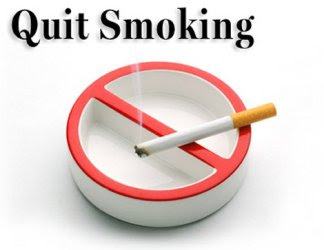Author: Xu Lixing
Many people from different parts of the world are becoming more aware of eating healthy food to maintain good health. This awareness could be a result of growing health concerns among the masses due to consumption of food that lacks proteins, vitamins and other such vital supplements for the human body. The hectic life we are living today leaves us with very less time to exercise, thus it becomes more important that we substitute this with eating healthy food. Though there are many different things that you could be part of your healthy daily diet, there is one thing that is fast becoming a preferred health food for many around the globe – Seafood. Many people have grown to realize the various health benefits that seafood has to offer. In this article, let us consider the health benefits of frozen seafood.
First and foremost, seafood is rich in Omega-3. There are plenty of health benefits that have been associated with Omega-3 and the list continues to grow. What are the benefits of Omega-3?
Omega-3 is a collection of fatty acids which include EPA and DHA. These are also said to be essential fatty acids as the human body does not produce them and thus it becomes essential that you get this from your food or other supplements. Omega-3 fatty acids aid in the building of fats in our body. Though fats have a bad reputation, they are still vital nutrients for the body.
Omega-3 also reduces triglycerides which are unhealthy fats. A number of cardiovascular diseases are associated with the presence of high level of triglycerides.
Omega-3 also prevents formation of blood clots which can block an artery to the heart and cause a heart attack.
Omega-3 also helps in reducing blood pressure slightly, another factor associated with heart attacks.
Brain
Omega-3 helps improve memory. Studies show that it also helps in the learning process and makes the brain sharper. Students who have Omega-3 in their diet tend to do well in their academics and have less behavioural problems compared to their peers.
Omega-3 can also protect us from mood disorders and is also associated with improving the moods of people suffering from depression.
Omega-3 is a very vital nutrient required for babies. Babies need DHA for proper development of their brain.
Skin
Omeag-3 also helps fight dry and scaly skin. EPA present in Omega-3 helps in regulating oil production in the skin. This helps keep our skin hydrated and prevents it from drying and flaking.
Omega-3 also acts as an antioxidant by protecting our skin from damage. When our body is exposed to UV radiation, it generates harmful substances called free radicals, which causes cell damage and may lead to cancer or early aging.
Omega-3 is also good for your scalp and hair. Lack of these nutrients can cause dry and flaky scalp, your hair may lose its shine, and it may also cause excessive hair loss.
These are just a few benefits listed here that comes with consumption of Omega-3 and seafood is rich in this. To enjoy these and many more benefits ensure that you regularly include seafood in your diet. Eat healthy live happier!
About the Author
King Nestle International Company specializes in supplying the highest quality sea food products (such as vannamei white shrimp, frozen tilapia fillets, Alaska Pollock fish, etc.) They proudly present their seafood industry (Golden Pompano) services that can add extra value to the commercial markets. Their highly dedicated customer service will give the confidence and pleasure working with them.
Many people from different parts of the world are becoming more aware of eating healthy food to maintain good health. This awareness could be a result of growing health concerns among the masses due to consumption of food that lacks proteins, vitamins and other such vital supplements for the human body. The hectic life we are living today leaves us with very less time to exercise, thus it becomes more important that we substitute this with eating healthy food. Though there are many different things that you could be part of your healthy daily diet, there is one thing that is fast becoming a preferred health food for many around the globe – Seafood. Many people have grown to realize the various health benefits that seafood has to offer. In this article, let us consider the health benefits of frozen seafood.
First and foremost, seafood is rich in Omega-3. There are plenty of health benefits that have been associated with Omega-3 and the list continues to grow. What are the benefits of Omega-3?
Omega-3 is a collection of fatty acids which include EPA and DHA. These are also said to be essential fatty acids as the human body does not produce them and thus it becomes essential that you get this from your food or other supplements. Omega-3 fatty acids aid in the building of fats in our body. Though fats have a bad reputation, they are still vital nutrients for the body.
Heart
Omega-3 fatty acids protect our cardiovascular system (heart) by helping lower cholesterol level. Cholesterol refers to wax like fats that accumulates in your arteries and blocks them thus increasing chances of a heart attack.Omega-3 also reduces triglycerides which are unhealthy fats. A number of cardiovascular diseases are associated with the presence of high level of triglycerides.
Omega-3 also prevents formation of blood clots which can block an artery to the heart and cause a heart attack.
Omega-3 also helps in reducing blood pressure slightly, another factor associated with heart attacks.
Brain
Omega-3 helps improve memory. Studies show that it also helps in the learning process and makes the brain sharper. Students who have Omega-3 in their diet tend to do well in their academics and have less behavioural problems compared to their peers.
Omega-3 can also protect us from mood disorders and is also associated with improving the moods of people suffering from depression.
Omega-3 is a very vital nutrient required for babies. Babies need DHA for proper development of their brain.
Skin
Omeag-3 also helps fight dry and scaly skin. EPA present in Omega-3 helps in regulating oil production in the skin. This helps keep our skin hydrated and prevents it from drying and flaking.
Omega-3 also acts as an antioxidant by protecting our skin from damage. When our body is exposed to UV radiation, it generates harmful substances called free radicals, which causes cell damage and may lead to cancer or early aging.
Omega-3 is also good for your scalp and hair. Lack of these nutrients can cause dry and flaky scalp, your hair may lose its shine, and it may also cause excessive hair loss.
These are just a few benefits listed here that comes with consumption of Omega-3 and seafood is rich in this. To enjoy these and many more benefits ensure that you regularly include seafood in your diet. Eat healthy live happier!
About the Author
King Nestle International Company specializes in supplying the highest quality sea food products (such as vannamei white shrimp, frozen tilapia fillets, Alaska Pollock fish, etc.) They proudly present their seafood industry (Golden Pompano) services that can add extra value to the commercial markets. Their highly dedicated customer service will give the confidence and pleasure working with them.















